How Israel Shaped Tara Brown’s Jewish Identity
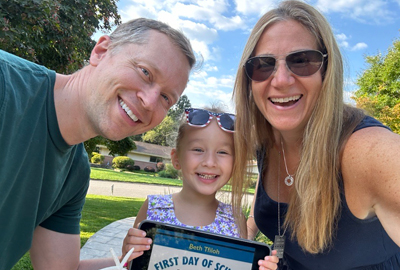
Tara Brown has a deep love for Israel — a love that has really fueled her adult Jewish journey. Although she didn’t visit Israel until she was 26, that trip became a turning point in her life.
The New Jersey native opens up about the heartbreaking events of October 7, her numerous trips to Israel, and how a particularly emotional visit to the Kotel after devastating fertility news helped guide her on the path to having her daughter, Eliora. She also shares heartfelt advice for anyone navigating their own infertility struggles.
Tell us about the first time you went to Israel:
I grew up in a Reform household. We were proud Jews, more so culturally Jewish. We were supportive of Israel, but I didn’t know much about the country or any of its politics. I wasn’t very connected to the rest of the Jewish world.
When I went to college at University of Maryland College Park, I met great Jewish friends who invited me to their homes for Jewish holidays. I started to have this deep drive to travel to Israel.
It wasn’t until I was 26 years old, that I finally visited Israel through Birthright. It just changed everything for me. It was a reaffirmation of the love I had for Jewish life and a recognition that Israel is at the center of it.
How did Israel change you?
After the trip I started to light Shabbat candles and I became more aware of my spirituality and connection to the Jewish world. Shortly after this trip I started to work at AIPAC. I’ve been there about 20 years; I met my husband through work and some of my closest friends. I’ve also been exposed to another level of Judaism I never knew existed.
My husband Ari also comes from a very Zionistic family, and he has a deep love for Israel. When we got married, we made a pact that we’d try to go to Israel together at least once a year. This year, I’ll have been to Israel four times and we are planning to book a trip in December to take our daughter, Eliora, to Israel for the first time!
Can you share how your involvement with The Associated influenced your decision to stay in Baltimore?
Right before Birthright, I moved to Baltimore for a job and to be close to friends. After returning, one of my closest friends, Stephanie Baron, told me to come with her to an Associated event. I knew nothing about it, but I went and really enjoyed it. I became more involved and started making more Jewish friends through The Associated. Everyone was so warm and welcoming.
This was a major factor in my decision to spend my life in Baltimore. Through The Associated, I saw what a strong, philanthropic and pro-Israel Jewish community Baltimore was. I knew I wanted to raise my kids and have my family in this community.
Fast forward about 20 years, and that same friend, Stephanie Baron, and I were sitting in my backyard and talking about how we never went to Israel together. She was like ‘hey The Associated has this amazing cohort called The Inspired Women’s Project (IWP) and they go to Israel. We should apply.’ And we did and we both got accepted for the 2024 cohort.
We’re now part of this IWP cohort of such an incredible group of women. It’s been such a wonderful experience so far.
How did your perspective on Jewish identity and community change after October 7?
October 7th was a wakeup call and a reminder of how difficult, and how special, it is to be a Jew. We see the response around the world, and on American college campuses, and what people say on social media and you realize just how fragile our acceptance in the world truly is. It’s just devastating.
There’s two ways to deal with it: One, hide and not show your Jewish identity, or two, double down on being Jewish. That’s exactly what we did.
Literally on October 8, I told my husband to wear his kippah full time and not take it off. We decided we’re keeping our daughter in Jewish day school throughout her time in school. We doubled our donation to Jewish organizations. As long as we live in America, we will do everything we can to ensure the safety and security of our Jewish community.
What was it like going back to Israel post-October 7?
My first trip back was January 2024. I think every day for them is October 7th. People were not out. The bars, the beach, Tel Aviv, was just quiet. There were hostage signs everywhere. The feeling in the air was just so raw. It was so meaningful to be there and I just felt that’s where I belong. I needed to be part of the people and show my solidarity.
The trips I took to Israel this summer were different, and harder than the one in January. It just seemed like Israel felt let down, with many hostages not being rescued yet, they’re exhausted being nine months into the war. But they’re so grateful for everything that’s been done for them and the support, especially American support. They were also concerned about the worldwide antisemitism. Israelis were asking ME how things were in America and if WE needed help.
Would you be open to sharing more about your journey with infertility and how you’ve navigated it?
I find it helpful and therapeutic to be open about my fertility journey. I really value the help and support I received from people that went through it and I want to pay it forward.
Our fertility journey started when we got married. I had a surgery in my 20s that left me without the majority of my ovaries, plus I was 36 when we got married, so we started talking about having kids right away. Our daughter Eliora was born when I was 43, so our fertility journey was about eight years. We did eight rounds of IVF, thousands of needles, tons of embryo transplants, so much medication and hundreds of thousands of dollars. Not to mention so much anger, frustration and tears.
Even though so many people go through it, infertility is not talked about enough. It’s so helpful rely on people who have been on the journey, understand it, and can answer hard questions. There are also Jewish agencies, based on which path you take, who help with resources. This was important to me to have that because I had cultural questions.
In large part, being pregnant was due to a lot of faith. One of the time I went to Israel I stood at the Kotel and just started crying at the wall and praying. We had gotten some really devastating news about my ability to biologically be able to have a child. Being at the Kotel, surrounded by the spirit and our people, was a significant part of my fertility journey that changed the way I thought about things, which helped lead us down the path we went on to have our daughter, Eliora.
What advice would you give to someone who is currently struggling with infertility?
This is the advice I give to anyone starting their fertility journey because it was the greatest advice that stuck with me during my journey. The fertility doctor we started with, but did not end with, gave me this advice. I credit her very much for having an impact on Eliora’s arrival into this world.
After my first round of IVF, I had to have a surgery to fix something, but something went wrong that made it infinitely harder for me to conceive on my own. Biologically having a child would be extremely difficult. I was beyond devastated.
I remember crying in this doctor’s office and she said to me, ‘If you want to be a mom, you are going to be a mom. It may look different than what you thought it would look like, but you will be a mom.’
Initially, when she said that I was so resentful and angry, I didn’t want to hear it. Eventually, my realization that this statement was true helped lead to my openness and willingness to think differently about how I would be a mom, which ultimately led to me having my daughter, Eliora. For people willing to accept this advice, it can be incredibly powerful.
Subscribe to our newsletter
The Associated is a home for everyone in the Baltimore Jewish community. We offer several email lists to help people find a community, engage with their peers and support Jewish journeys around the world.
Join Our Mailing ListAdd Impact to Your Inbox
Sign up for our newsletter
Subscribe to our newsletter
The Associated is a home for everyone in the Baltimore Jewish community. We offer several email lists to help people find a community, engage with their peers and support Jewish journeys around the world.
Join Our Mailing List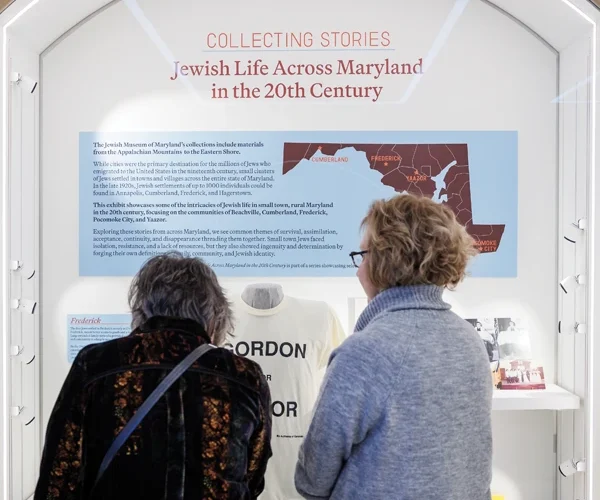
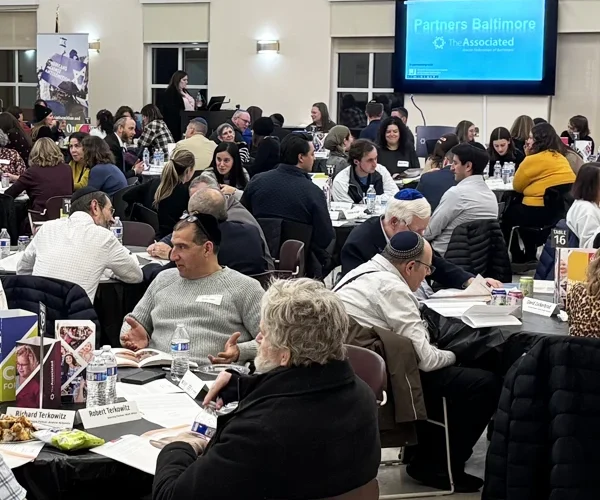
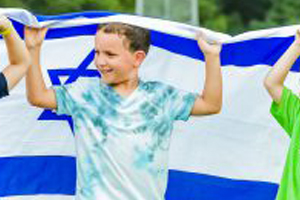

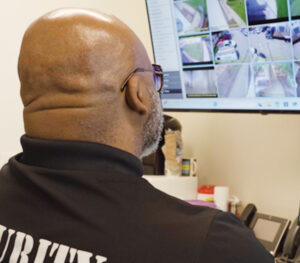
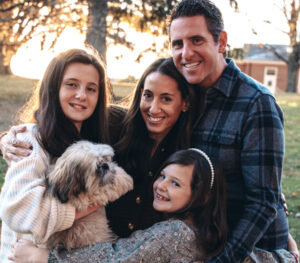
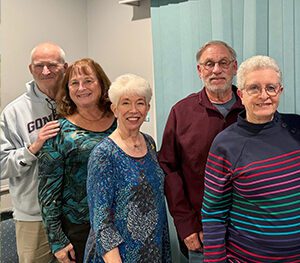
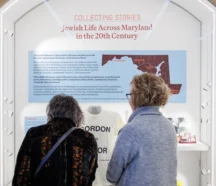
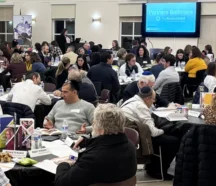
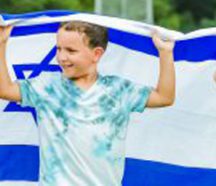
 Please Wait while we loading your video.
Please Wait while we loading your video.